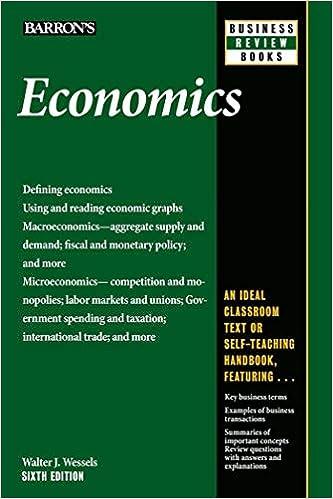There are nine people in a town. Person 1 eats $1 of food at a meal, person
Question:
There are nine people in a town. Person 1 eats $1 of food at a meal, person 2 eats $2 of food at a meal, and so forth (so person 9 eats $9 of food at a meal). Each person is willing to pay a price equal to twice the cost of food they eat (so that person 2 will pay up to $4 to eat at a restaurant). Burr’s Buffet cannot tell who will eat what amount so it charges the same price to all persons. Assume Burr will set its price so that the value of the meal to its marginal customer (this is, the meal’s demand price) equals its average meal cost. (If Burr is a monopoly, it would charge a price exceeding its average cost. However, if there is competition in the restaurant business, this assumption produces the competitive outcome that in the long run price reflects average cost).
What will the price of the meal be and how many people will eat at Burr’s? What is the market failure in this case?
Step by Step Answer:






